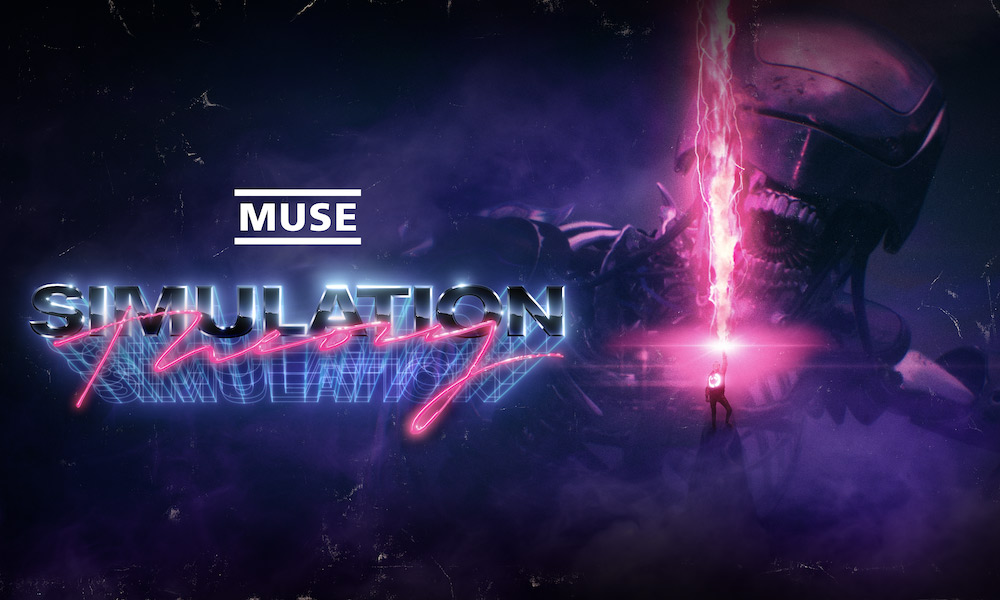

Muse dive deep into the 80s with their eclectic new Simulation Theory, a science-fiction adventure that sees the band fight against control. ‘ The Void‘ wraps this science-fiction journey up on a dark and dynamic note, the build of the track taking the record out hauntingly. There’s even time for more direct and upbeat anthems like the alternative ‘ Get Up and Fight‘ (which features vocals from Tove Lo) and the battle-cry that is ‘ Blockades' with its huge delivery and dynamic solo. Muse gets weirdly metal in ‘ Break It To Me,’ but in the best way: the darkness of the track paired with the Middle Eastern melodies make for an awesome track. The hook of ‘ Propaganda‘ is pretty jarring, but the verses have this cool, bluesy sort of movement to them that keeps the song going.

‘ Thought Contagion‘ channels a Thirty Seconds To Mars kind of anthemic energy, while lead single ‘ Dig Down‘ slowly builds with a choir-like disposition.


‘ Pressure‘ is the record’s most bombastic track, proud brass supporting the punchy guitar riff and wild drive. Muse doesn’t forget to bring the jams, though. Muse’s exploration of these 80s sounds finds a different face in ‘ Something Human,’ an acoustic ballad where Bellamy sings sweetly about being away from home. An onstage spectacle, Muse’s pioneering gigs featuring sci-fi sets, floating acrobats, UFOs & bouncing moons has been captured in concert films Hullabaloo (2002), HAARP (Live From Wembley Stadium) (2008), Live At Rome Olympic Stadium (2013) & Drones World Tour (2018), the ground-breaking show for 2015’s seventh album and US 1, Drones, a timely concept record about future warfare. Even opening track ‘ Algorithm‘ finds a great blend of tense drama and alternative drive, the dark build never quite exploding in an overbearing way but definitely gets the job done. The synth-heavy track has this funky alternative groove to it, Matt Bellamy‘s delivery and guitar solo also being reminiscent of the band’s critically acclaimed Origin Of Symmetry (this track is like a modern ‘ Space Dementia‘). Muse does a great job at capturing that old-school sound while bringing it to a modern stage: single ‘ The Dark Side‘ is a great example of that.
#Concept of simulation theory album muse full
It’s also full of synths, like it’s straight out of the 80s. Simulation Theory is all about fighting the system and rising up to escape control. Muse dive deep into the 80s with their eclectic new Simulation Theory, a grandiose and different record for the band. After dropping singles for almost two years now, the band has finally returned with their newest effort, and they’re not done with their wild concepts. "It was nice to go back to that really early point in our life in the '80s and find some of the sounds that we liked.It’s been three years since Muse dropped their last record, 2015’s heavier, conceptual Drones. "Most of Muse has been about stuff we sort of came to in our teenage years onwards," he adds. In particular, it was an embrace of modern virtual reality gaming. In addition to running from stage to studio like the band hadn't done in years, the band members looked to their respective childhoods in the '80s for inspiration, taking elements of pop culture from their earliest memories and appropriating them into the new album.īellamy says Simulation Theory for him began as a reconnection with his childhood love for video games. It was nice keeping the vibe fresh, being on stage and then being in the studio." And that's why the songs came in piecemeal a little bit, because we were breaking it up in between doing shows. "So we thought it might be nice to mix it up and do it that way this time. "In the early years, we made albums where we'd be like touring, then in the studio for a week or two, then back touring again," Bellamy explained.


 0 kommentar(er)
0 kommentar(er)
